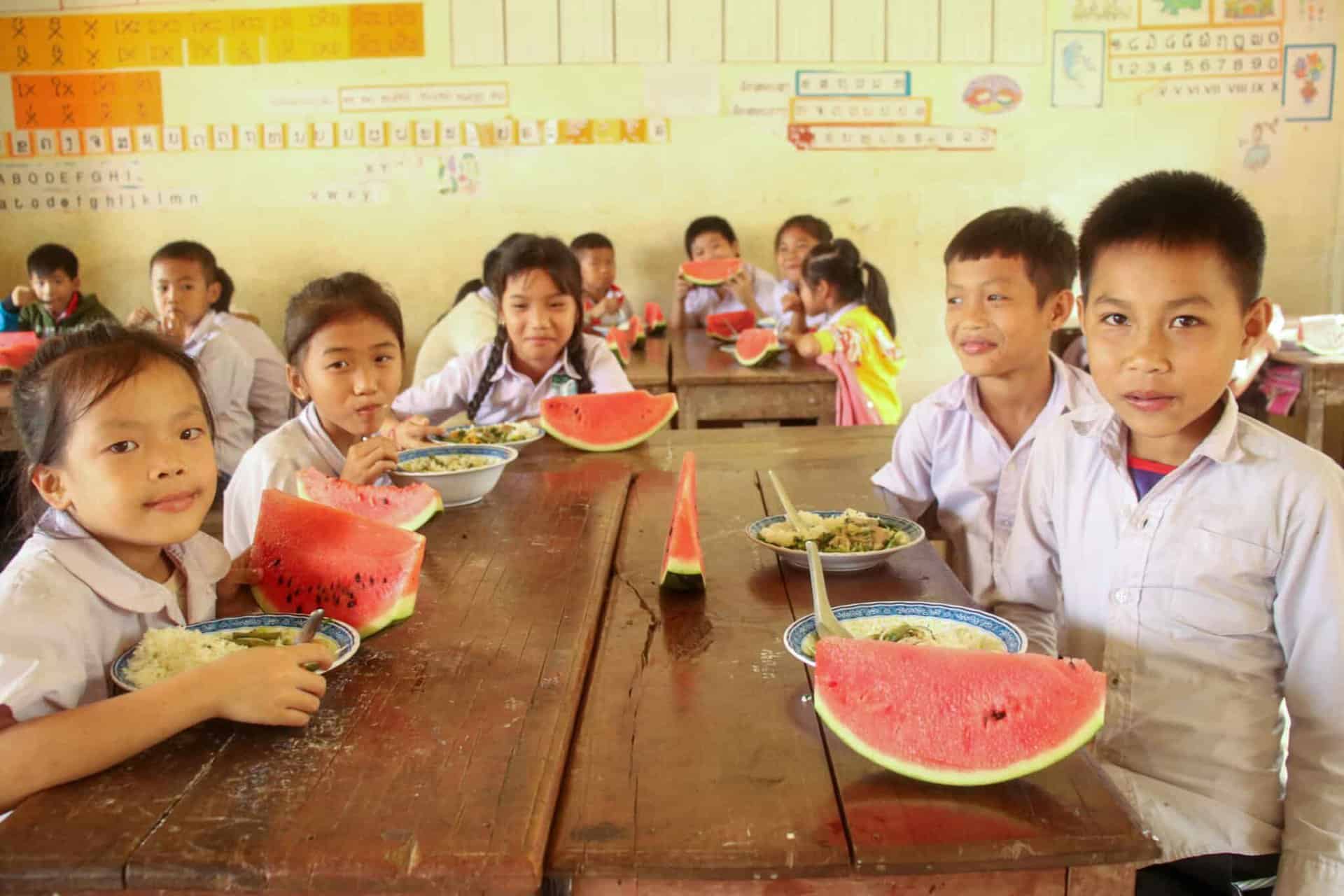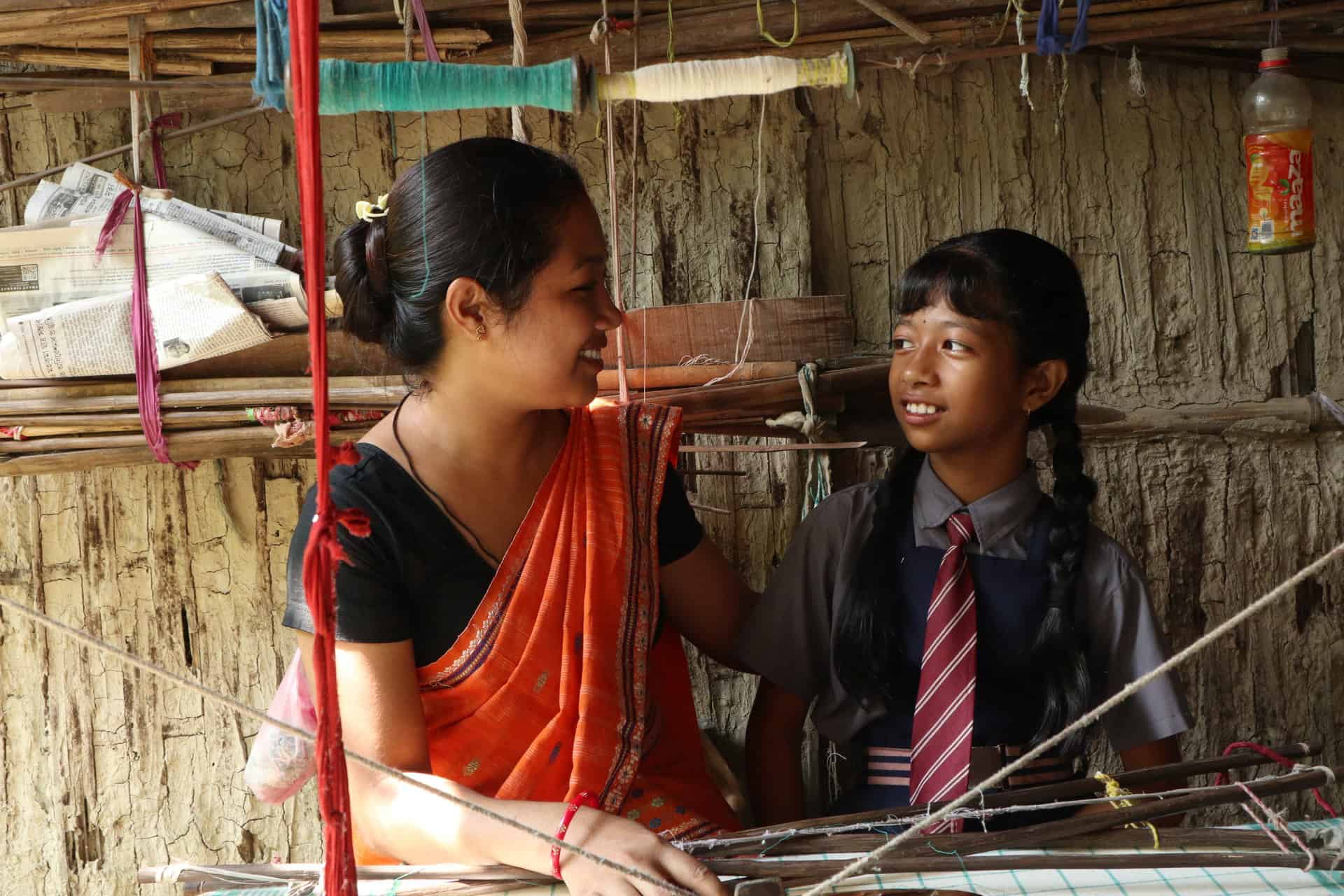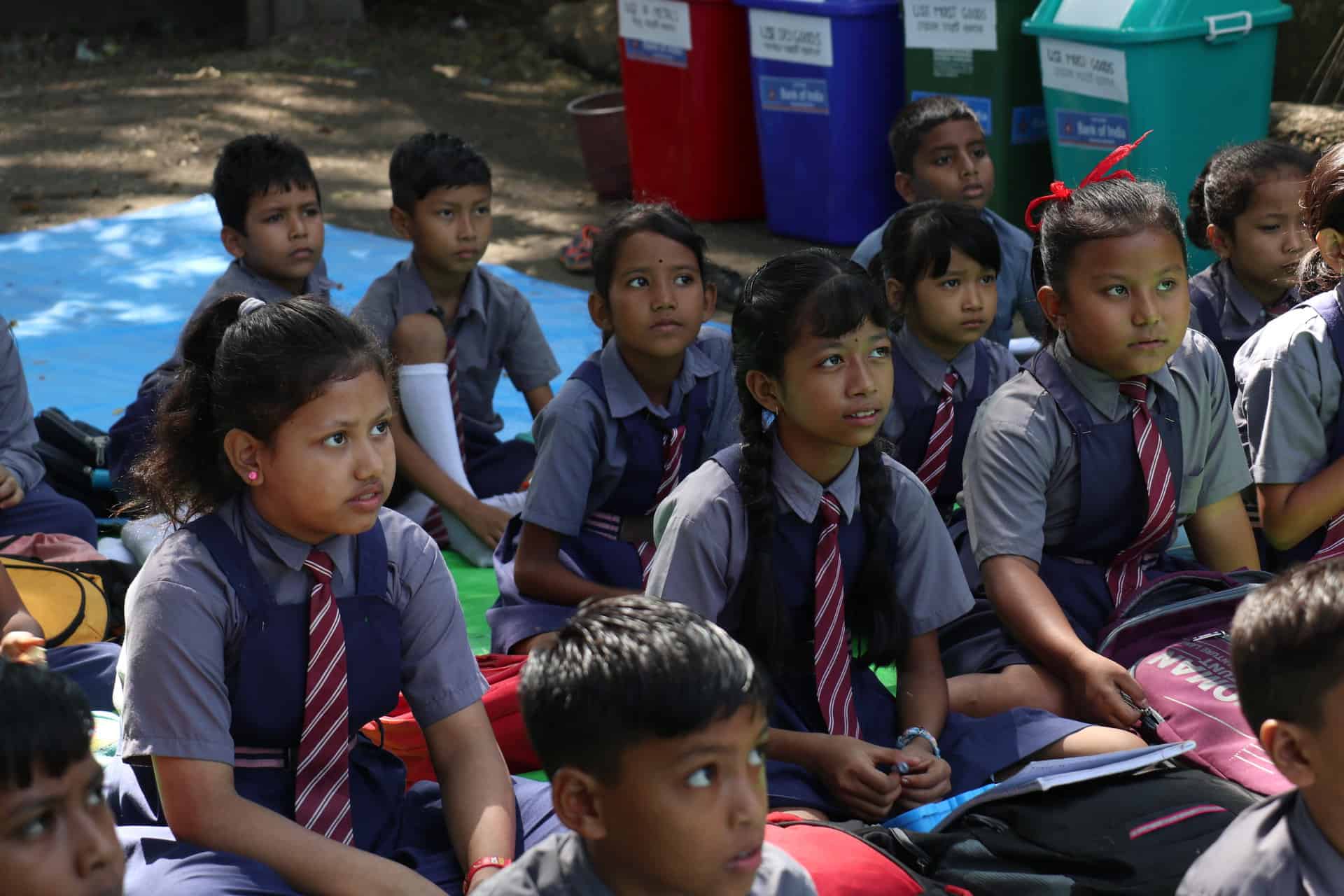Photo credits: Action Education Laos / Pascale THEOPHILE
7 April 2023 marks World Health Day and the 75th anniversary of theème anniversary of the World Health Organisation (WHO). The theme of the day is "Health for All", to highlight the need for equal access to nutrition and health services for all. This is an opportunity for Action Education to highlight the importance of nutrition for quality education.
The interdependence between education, nutrition and health
There is a well-documented interdependence between education, nutrition and health. According to a WHO report, as early as 1950, it was found that The study found that "nutritional deficiencies and poor health of primary school-age children was one of the causes of low enrolment, high absenteeism, early dropout and poor school performance ". Nutritional deficiencies (in iron, vitamin A, iodine, etc.) affect attendance, attention in class and learning. We see this in practice in our work: a child or young person who is hungry does not learn well! A healthy diet in sufficient quantity is essential for learning and development. There is also a direct effect in the other direction: without quality education, children are less likely to be healthy. Education and nutrition are two key elements for human development.
Investments still insufficient
 Good nutrition, health and education are not only basic rights but also an investment in development. Nutritious school meals increase enrolment by an average of 9 % and attendance by 8 %. The presence of school nutrition and health services encourages children to come to school and stay in school. A recent report shows a significant return on investment at the country level: school feeding programmes generate $9 for every $1 invested, for example.
Good nutrition, health and education are not only basic rights but also an investment in development. Nutritious school meals increase enrolment by an average of 9 % and attendance by 8 %. The presence of school nutrition and health services encourages children to come to school and stay in school. A recent report shows a significant return on investment at the country level: school feeding programmes generate $9 for every $1 invested, for example.
While nine out of ten countries invest in school nutrition and health programmes, 73 million children The number of people affected by hunger in the world is increasing again and it is now estimated that 149 million children under 5 years of age are stunted in growth and development due to a lack of essential nutrients. The number of people affected by hunger in the world is rising again and it is now estimated that 149 million children under the age of 5 are stunted in growth and development due to a lack of essential nutrients in their diet.
Stunting can cause long-term damage that extends well beyond childhood, including impaired learning ability, poor school performance, and reduced productivity and earnings in adulthood.
Food and nutrition education in schools: a major health issue
In many parts of the world, students depend on school to provide at least one balanced meal a day. At the height of the COVID-19 crisis, school closures led to increased hunger for hundreds of millions of students, with a negative impact on their nutrition.
Schools are also a key place to improve nutrition and promote child developments. Schoolchildren are at an age when their eating habits are being formed. Teachers can convey the right messages, using methods that facilitate the assimilation of knowledge (games, demonstrations, etc.). School curricula can include courses on nutrition and horticulture, which can help increase local food production and the availability of healthy food.
But food and nutrition education is not just about delivering messages. We believe it is important to involve children in instructive experiences, both in and out of school. These initiatives can enable children and their communities to become real actors of change in the local food environment. The involvement of all stakeholders in the school (children, parents, communities, teachers, farmers, etc.) can reach a wider audience. School gardens, in particular, are an excellent way to teach students good eating habits and environmental awareness. These gardens also help to build social links between students, families and local communities.
Some of Action Education's actions in favour of food education in schools
Action Education, through its programmes, is increasingly developing food and nutrition education in schools. Here are some examples: 
- In Burkina FasoThe school gardens set up under a former project (Support to Schooling and Health Development) are now entirely managed by the communities, so that the nutritional and educational benefits are sustainable. For the headmaster of the Obdaga school, the sustainability of the school garden is important for two reasons: "On the one hand, it enriches the canteen meal with vegetables and on the other hand, it plays an educational role by serving as a practical case for the agriculture course".
- Laos:In Africa, nearly a third of children under the age of five are stunted due to malnutrition. Some of our projects provide nutritious meals to students from low-income households and teach parents and communities how to prepare complete and varied meals from local ingredients. School meals motivate students to attend school more and improve their learning outcomes. We also promote school gardens where children can grow their own vegetables and learn more about nutrition.
- In Vietnam,We are implementing several nutrition programmes, especially in areas with high poverty and malnutrition rates. After participating in a programme in Da Bac district, Ms. Loan says: "Cooking nutritious meals is no longer difficult and expensive, because the ingredients are easy to find in my village. Now I like to cook a variety of dishes. My family, especially my daughter, likes to eat them. As a result, she is healthier and her school performance is improving.
Additional resources






